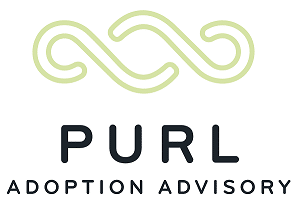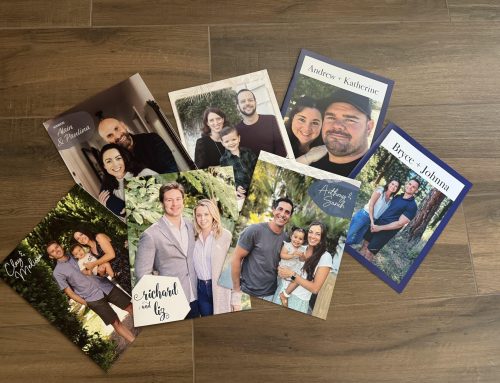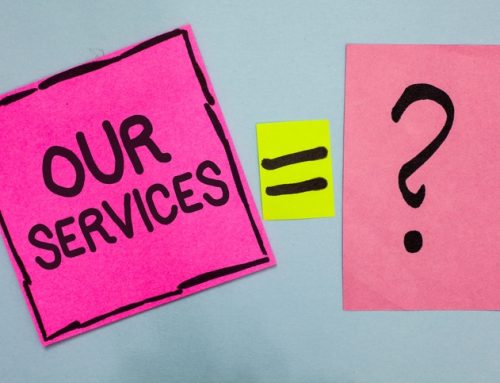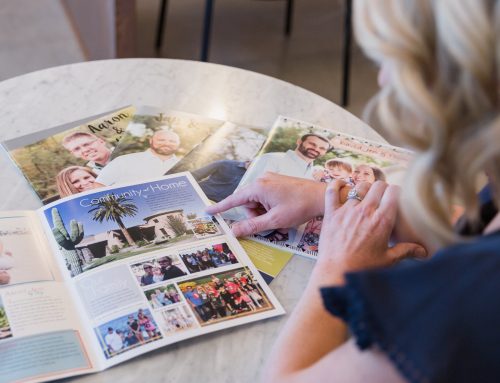
If you’ve been following along this month, we are finally to the point where it gets really exciting, but also very nerve-wracking! You’ve been chosen as prospective adoptive parents for a child and you have to get prepared to possibly become a parent, likely in much less preparation time than you’d have if you were pregnant yourself.
So, what do you need to know and become prepared for?! If you have an adoption advisor like Purl, your advisor and the attorney or agency you matched through should be helping thoroughly prepare you for the following topics between when you are chosen and when the baby arrives:
-
Communication/contact during the match: what does the expectant family wants as far as communication between the match and the baby’s due date? Do they want to talk on the phone, allow you to be at doctor’s visits, do they want you to travel to visit right away, do they want you to be there for the birth?
-
Hospital/birth plan: what does the expectant family want as far as the hospital/birth plan – do they want you to be in the delivery room, or do they plan to spend all their time with the baby until consents are signed? Know that both of these scenarios are “normal” and so are many others! Whatever you are told the expectant family wants can change at any point, so it is important to be flexible on this and understand that it is not set in stone, even though the hospital plan can help to prepare. I have never seen an adoption plan go exactly as the expectant family initially indicated, so try to go with the flow and not get too freaked out if there is a change. Whatever you do, know that it is the expectant family’s say on everything, the expectant mother can choose who to be there at the birth and what occurs. This child is not your child until the expectant family confirms their decision on the adoption plan, when legally possibly to do so. If you are upset about something that occurs during this time, call your advisor, do not let your emotions interfere with an already difficult time for the expectant family.
-
Naming the baby: It is important to understand that the expectant family will be the one completing paperwork at the hospital to name the child for the child’s initial birth certificate, but then that birth certificate is later changed after finalization to reflect the adoptive parents’ names. I recommend discussing the process for naming the baby with the attorney/agency you match through first. They can tell you whether the expectant mother plans to name the child, or they might recommend that you try and come up with names together with the expectant family so that the child’s name is the same on both birth certificates. Just know that a name for the child is one of the last significant things a birth family can do for their child, so as a prospective adoptive parent I would consider honoring at least part of the expectant family’s wishes in the child’s name, even though you legally have the right to change the name at finalization. If you match in advance of the birth, I WOULD NOT recommend leaving this topic for discussion for the first time in the hospital, as I have seen this topic cause an adoption disruption.
-
Potential for state foster care involvement: if the expectant family was using illegal drugs or alcohol during the pregnancy and tests positive for a substance at birth, or the expectant family already has a CPS plan in place for their older children, it is important to understand how CPS might intervene, and whether the state usually honors an adoption plan in place before the CPS call.
-
Be empathetic/considerate of the expectant family: Throughout your match, remember that this is a happy and exciting time for you, but it is unlikely to be the same for the expectant family. So be cognizant and sensitive to the expectant family’s feelings at ALL times, and have empathy and care for the difficult decision they are making. I talked about this in more depth here.
-
Gifting the expectant family: Start to think about a thoughtful gift for the expectant family. It is important to talk with your attorney/agency about the laws in the expectant family’s state regarding gifts. Where it is allowed, I typically recommend my Purl families bring a small, thoughtful, inexpensive gift the first time they meet the expectant family or to the hospital once the baby arrives. Then, I typically recommend a sentimental gift (and likely more expensive) be given after consents are signed, so that there is not any element of coercion to the gift. I typically recommend a necklace, ring or bracelet with the baby’s birthstone, but a keepsake box or album to keep photos you send of the child is often well received. Here’s a few blog posts that could be helpful on the selection of the gift as well: here or here.
Hopefully these topics help you prepare for the match and the birth of the child you were chosen for. Our next post will talk about preparing for travel and ICPC, so stay tuned!

If you’ve been following along this month, we are finally to the point where it gets really exciting, but also very nerve-wracking! You’ve been chosen as prospective adoptive parents for a child and you have to get prepared to possibly become a parent, likely in much less preparation time than you’d have if you were pregnant yourself.
So, what do you need to know and become prepared for?! If you have an adoption advisor like Purl, your advisor and the attorney or agency you matched through should be helping thoroughly prepare you for the following topics between when you are chosen and when the baby arrives:
-
Communication/contact during the match: what does the expectant family wants as far as communication between the match and the baby’s due date? Do they want to talk on the phone, allow you to be at doctor’s visits, do they want you to travel to visit right away, do they want you to be there for the birth?
-
Hospital/birth plan: what does the expectant family want as far as the hospital/birth plan – do they want you to be in the delivery room, or do they plan to spend all their time with the baby until consents are signed? Know that both of these scenarios are “normal” and so are many others! Whatever you are told the expectant family wants can change at any point, so it is important to be flexible on this and understand that it is not set in stone, even though the hospital plan can help to prepare. I have never seen an adoption plan go exactly as the expectant family initially indicated, so try to go with the flow and not get too freaked out if there is a change. Whatever you do, know that it is the expectant family’s say on everything, the expectant mother can choose who to be there at the birth and what occurs. This child is not your child until the expectant family confirms their decision on the adoption plan, when legally possibly to do so. If you are upset about something that occurs during this time, call your advisor, do not let your emotions interfere with an already difficult time for the expectant family.
-
Naming the baby: It is important to understand that the expectant family will be the one completing paperwork at the hospital to name the child for the child’s initial birth certificate, but then that birth certificate is later changed after finalization to reflect the adoptive parents’ names. I recommend discussing the process for naming the baby with the attorney/agency you match through first. They can tell you whether the expectant mother plans to name the child, or they might recommend that you try and come up with names together with the expectant family so that the child’s name is the same on both birth certificates. Just know that a name for the child is one of the last significant things a birth family can do for their child, so as a prospective adoptive parent I would consider honoring at least part of the expectant family’s wishes in the child’s name, even though you legally have the right to change the name at finalization. If you match in advance of the birth, I WOULD NOT recommend leaving this topic for discussion for the first time in the hospital, as I have seen this topic cause an adoption disruption.
-
Potential for state foster care involvement: if the expectant family was using illegal drugs or alcohol during the pregnancy and tests positive for a substance at birth, or the expectant family already has a CPS plan in place for their older children, it is important to understand how CPS might intervene, and whether the state usually honors an adoption plan in place before the CPS call.
-
Be empathetic/considerate of the expectant family: Throughout your match, remember that this is a happy and exciting time for you, but it is unlikely to be the same for the expectant family. So be cognizant and sensitive to the expectant family’s feelings at ALL times, and have empathy and care for the difficult decision they are making. I talked about this in more depth here.
-
Gifting the expectant family: Start to think about a thoughtful gift for the expectant family. It is important to talk with your attorney/agency about the laws in the expectant family’s state regarding gifts. Where it is allowed, I typically recommend my Purl families bring a small, thoughtful, inexpensive gift the first time they meet the expectant family or to the hospital once the baby arrives. Then, I typically recommend a sentimental gift (and likely more expensive) be given after consents are signed, so that there is not any element of coercion to the gift. I typically recommend a necklace, ring or bracelet with the baby’s birthstone, but a keepsake box or album to keep photos you send of the child is often well received. Here’s a few blog posts that could be helpful on the selection of the gift as well: here or here.
Hopefully these topics help you prepare for the match and the birth of the child you were chosen for. Our next post will talk about preparing for travel and ICPC, so stay tuned!



